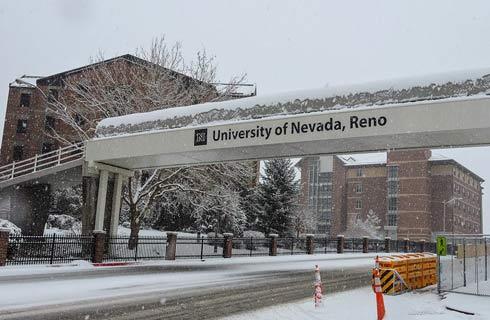国际学生入学条件
To be admitted to an undergraduate degree program as a regular freshman student, you must be a graduate from an approved or accredited high school (GED certificate may not be used for admission) and satisfy the below requirements:
You must have a 3.0 weighted GPA in the academic core courses in order to be admitted to the University of Nevada, Reno. The academic courses include: English, math, social sciences and natural sciences. A weighted GPA takes into account the extra difficulty of honors, AP or IB classes.
You must submit your final, official high school transcripts to support your application for admission.
SAT/ACT scores: We do not require SAT or ACT scores for admission or scholarship consideration
IELTS (must be academic version) with a score of 6.0 plus
TOEFL score 61 plus
展开
IDP—雅思考试联合主办方

雅思考试总分
6.0
- 雅思总分:6
- 托福网考总分:61
- 托福笔试总分:160
- 其他语言考试:Duolingo- 95
CRICOS代码:
申请截止日期: 请与IDP联系 以获取详细信息。
课程简介
The Geography Department offers a Bachelor of Science with a specialization in Geotechnologies. The Geotechnologies specialization emphasizes proficiency in geo-spatial methods. Additional skills developed include: critical thinking and reasoning, visual design, research techniques, oral and written communications, and mathematics and statistics. Students obtaining the Geotechnologies specialization will learn the tools, methods, and software necessary to manage and analyze spatial data and information. Students may choose to take internship credits towards their degree. The courses and specialization can be applied towards becoming a certified GIS Professional (GISP) from the GIS Certification Institute. This specialization is recommended for students interested in employment as a GIS or Remote Sensing Analyst, Cartographer, Planner, or graduate study in Geography or related Geotechnology field. All students are required to have a minor.<br>Students will be able to:<br>develop professional skills that will promote career development (writing; verbal presentation; visual communication; library and archival research; field work; computing; quantitative analysis; qualitative analysis; accountability, efficiency, precision and accuracy).<br>attain proficiency in a range of analytical skills (memorizing, analyzing, synthesizing, judgment, applications).<br>increase understanding of substantive disciplinary knowledge (spatial analysis, perception and geography; regional understandings; cultural interpretations of place and landscape; physical geographic analysis; human-environment interactions).<br>capitalize on learning experiences through well-designed departmental curriculum, strong academic advising, access to relevant departmental faculty, and opportunities for specialized training and experience.
展开







 预科
预科 奖学金
奖学金 实习机会
实习机会 在校学习
在校学习 跨境学习
跨境学习 校园授课-线上开始
校园授课-线上开始 在线/远程学习
在线/远程学习












 田纳西大学
田纳西大学

 宾汉姆顿大学
宾汉姆顿大学

 德克萨斯州立大学
德克萨斯州立大学

 卡尔顿大学
卡尔顿大学

 温哥华岛大学
温哥华岛大学

 路易斯安那州立大学-Shorelight
路易斯安那州立大学-Shorelight










